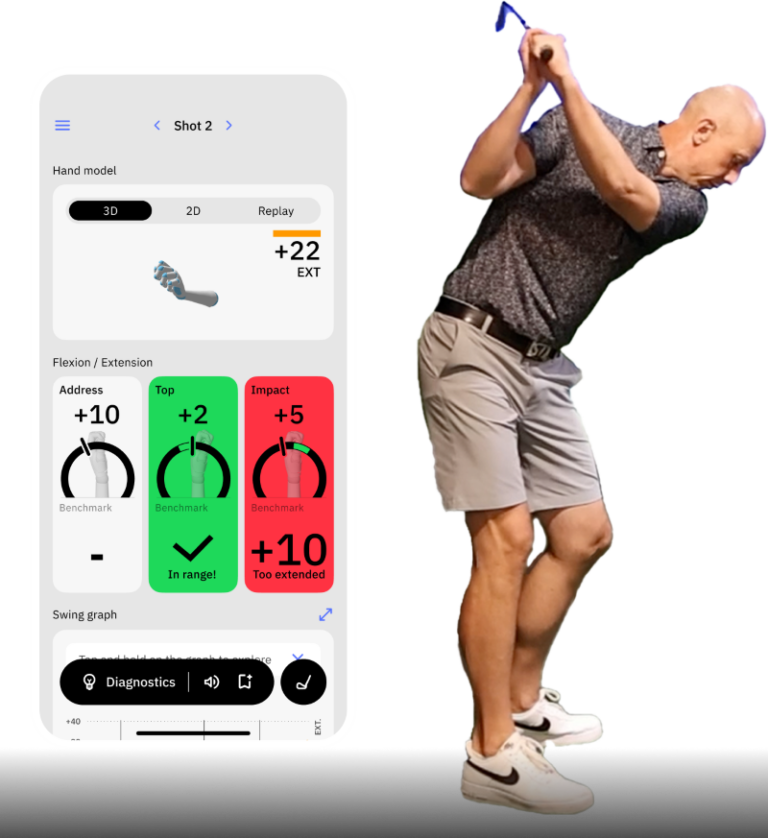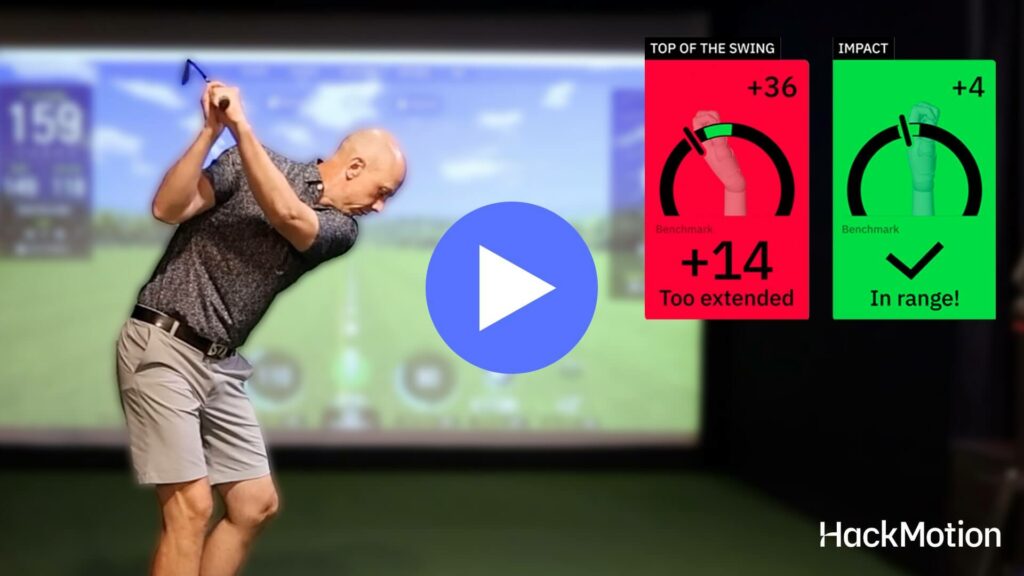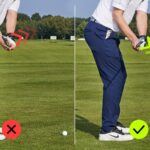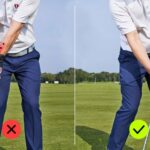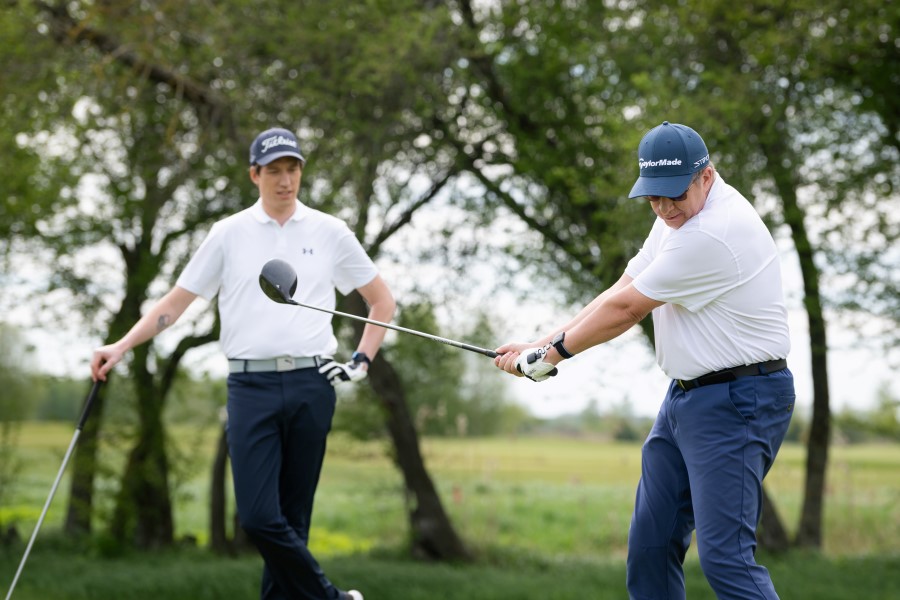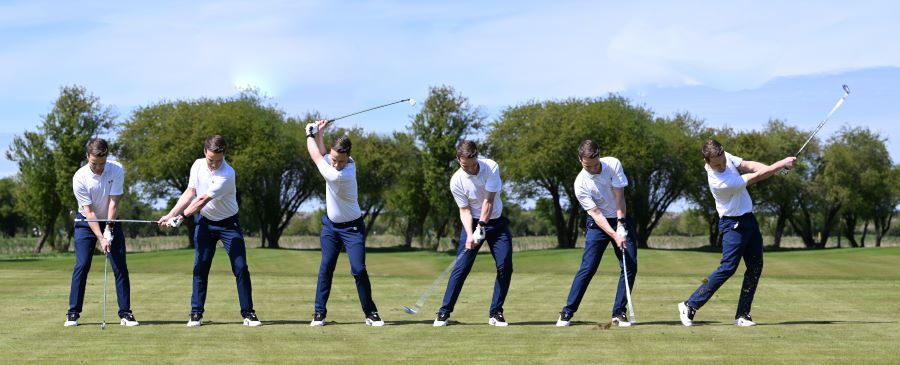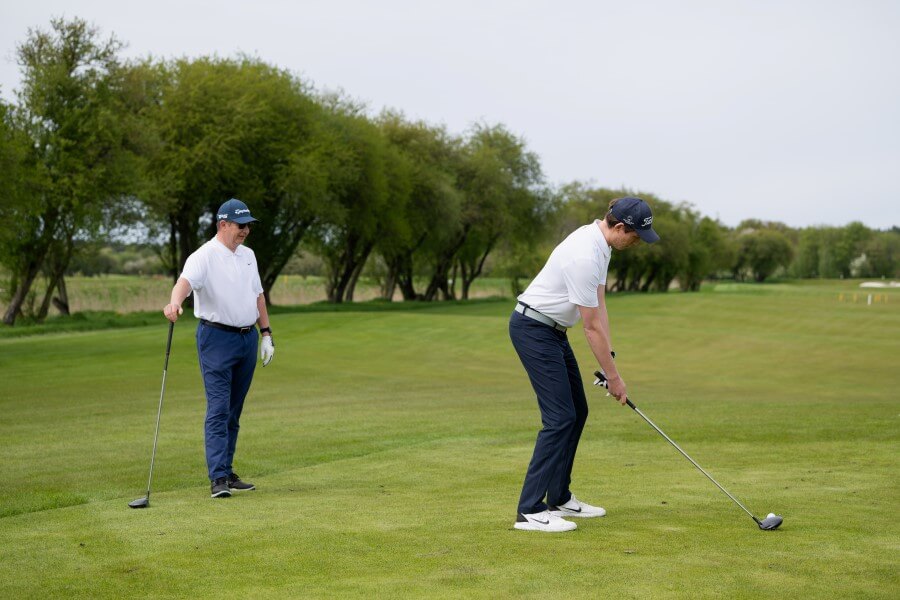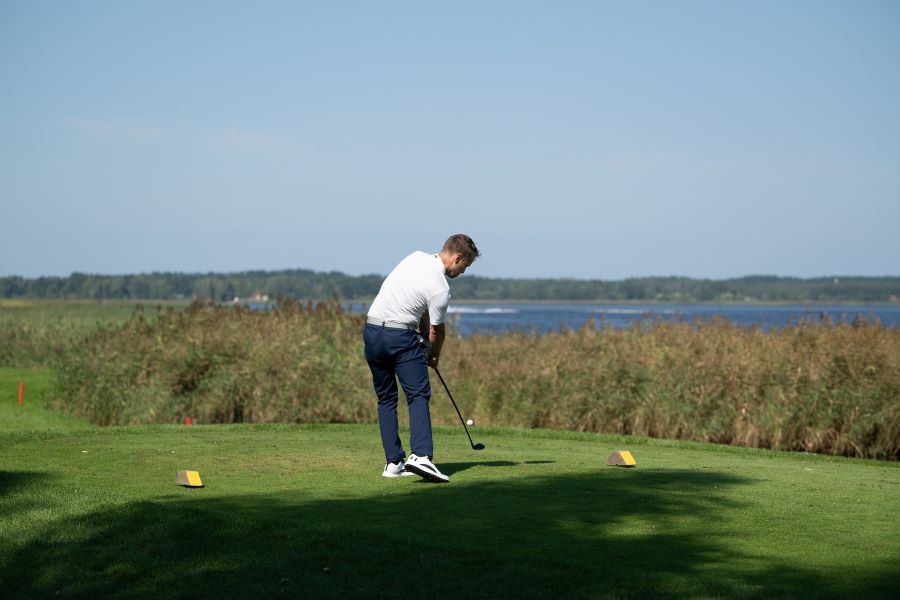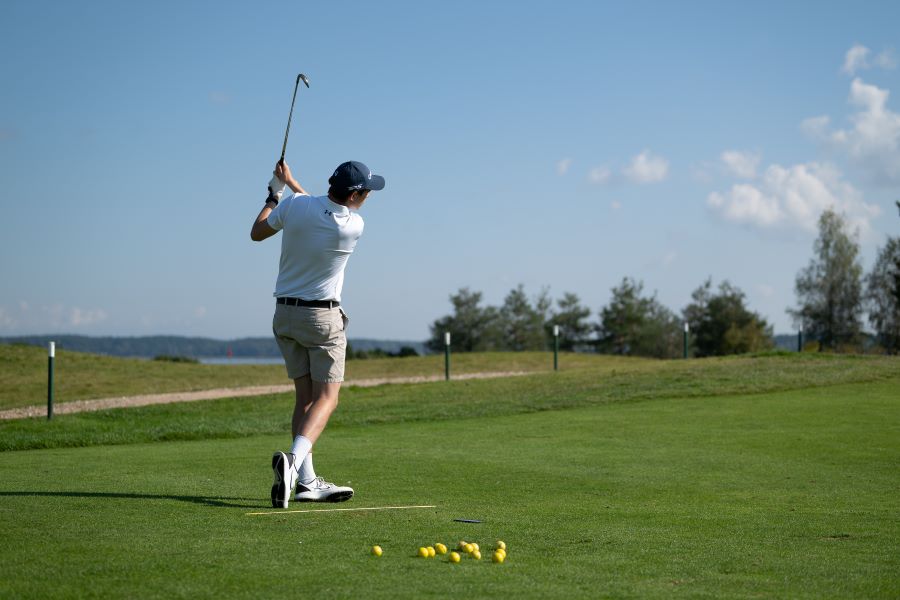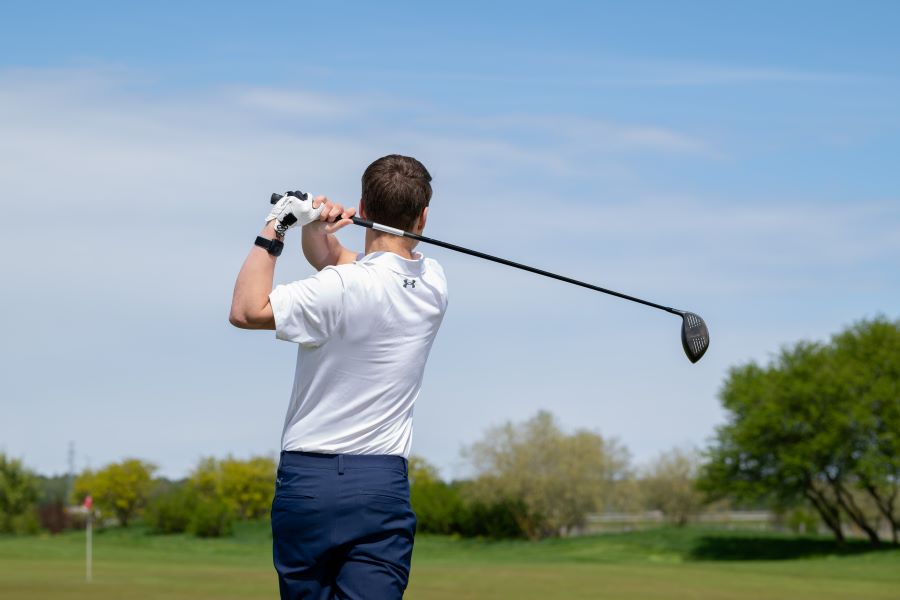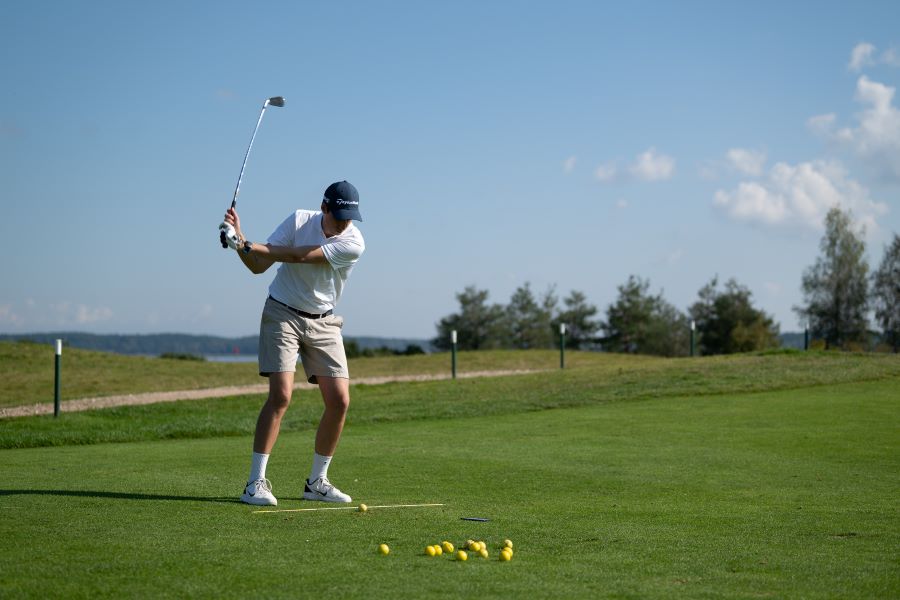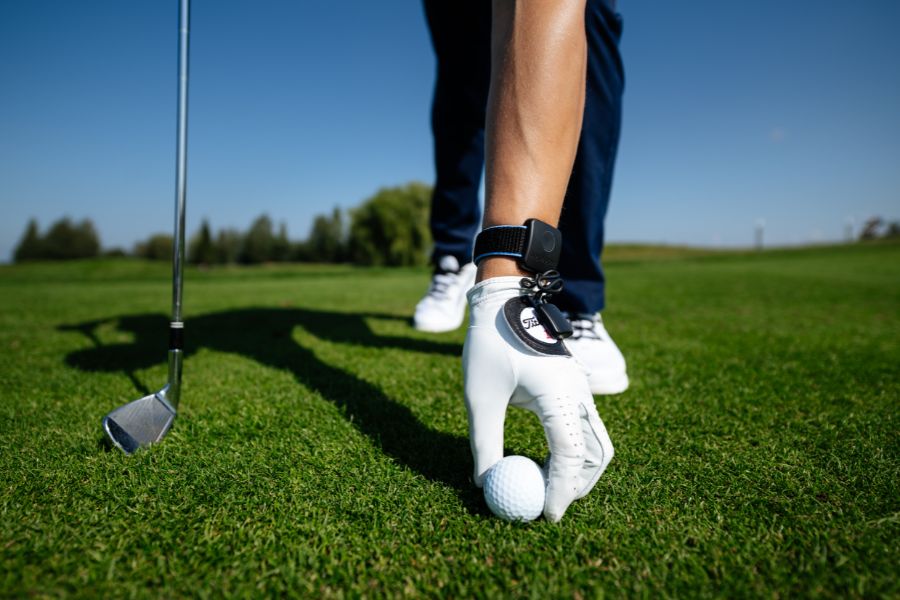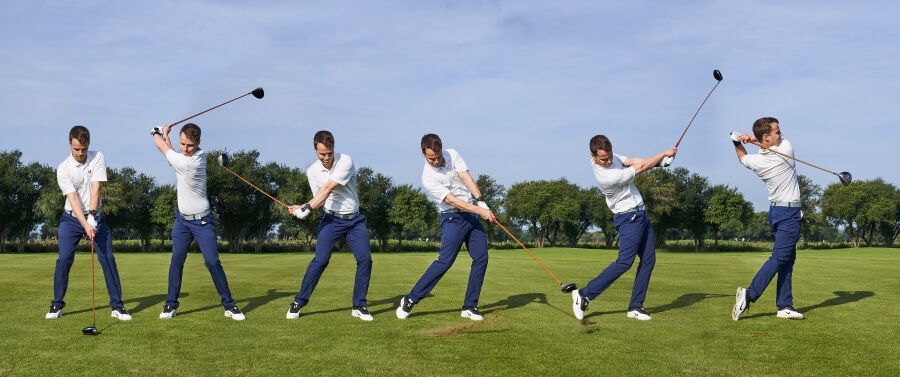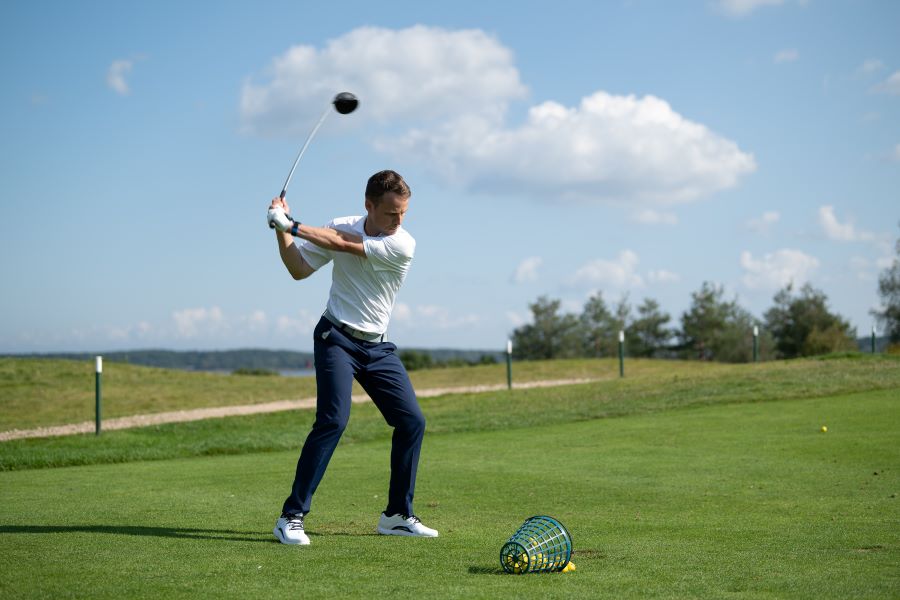5 Effective Ways to Fix a Steep Golf Swing (Complete Guide with Drills)
your golf swing is too steep, you’ll notice issues with ball contact, loss of distance, and slicing. A steep golf swing can encourage higher ball flight, but many golfers have swings that are steeper than they should be.
We are going to look at how to fix a steep golf swing by focusing on five specific areas of the game.
In addition, we will give you a few drills to make it easier to shallow the club and hit more consistent shots.
Steep Golf Swing Fix (Key Takeaways)
If you don’t have time to read through this guide on fixing a steep golf swing, here are a few of the most important things to keep in mind:
- Your steep golf swing will cause a clubface that is closer to open than square; this creates shots that go to the right of the target.
- The wrist position and angles in your golf swing can cause a steep golf swing. These can be fixed using HackMotion.
- To avoid a steep golf swing, be sure you focus on the setup and position you are in before you swing. Some amateurs set themselves up for a poor shot before the club even goes back.
5 Simple Steps to Fix a Steep Golf Swing
Check Your Setup: Avoid Standing Too Close to the Ball
When you stand close to the golf ball, your first move away is often a lift. Instead of taking the club back low and slow along the ground, it comes right up to a vertical position on the backswing.
When you set up to hit a golf ball, make sure you are a comfortable distance from the ball and that you can initiate your golf swing with a turn instead of a lift.
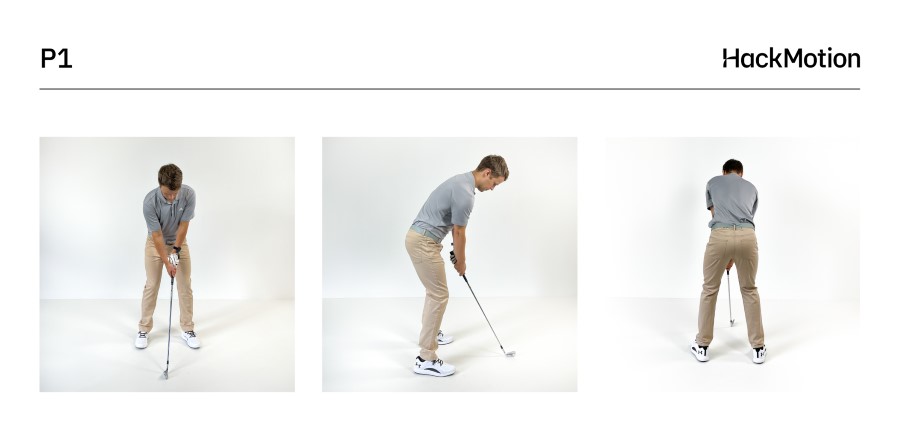
Let your arms hang naturally down. Some golfers still insist on bending their knees, but that is not necessary. Instead, stand tall, flex at the waist a bit, and let your arms hang down in front of you.
This should get you into the right position that allows a more neutral swing plane.
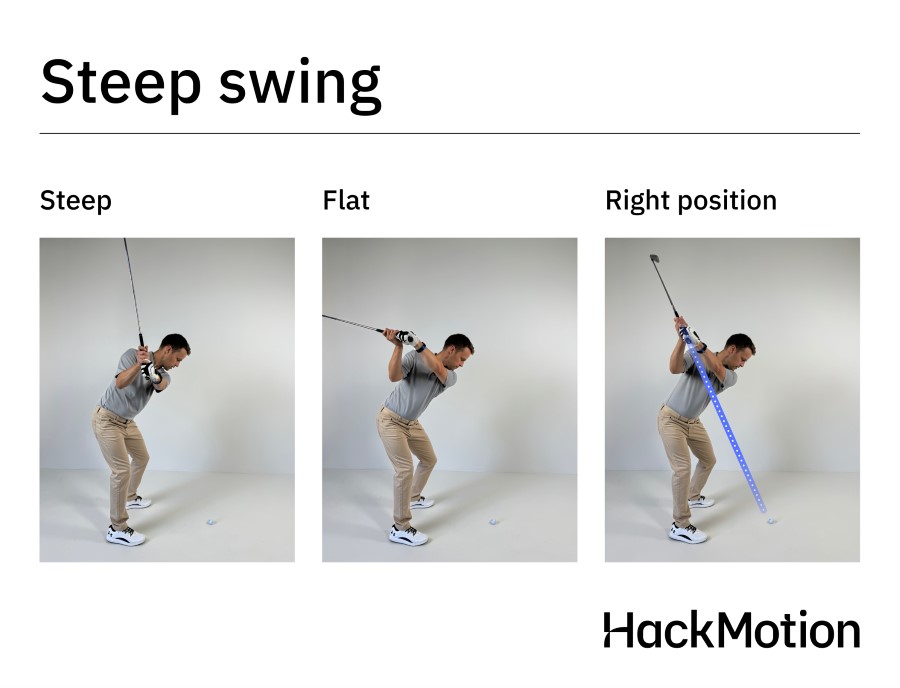
Reduce Extension in the Lead Wrist at the Top of the Backswing
The wrist position in your golf swing is a key feature to look at during setup, at the top of the swing, and again at impact.
Anytime the lead wrist is in an extended position, it has the potential to open the clubface.
It is common to have some extension in the lead wrist at the top of the backswing. On the downswing golfers decrease this extension and work to get the wrist back to a neutral position.
However, if you can get to a flat or slightly bowed position at the top of the backswing it becomes much easier to attack the ball from a more shallow angle instead of it being so steep.
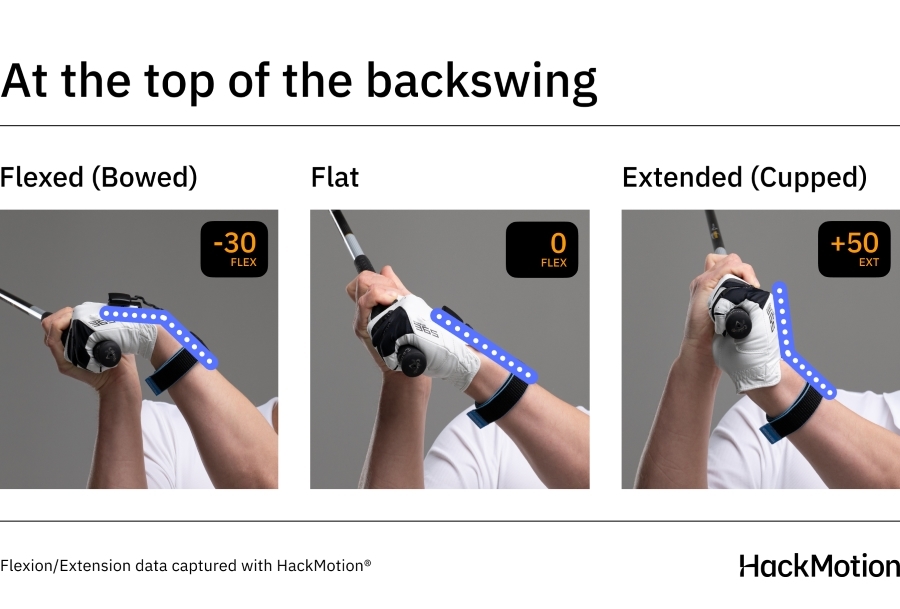
Wearing HackMotion while you practice is like having a coach with you at the driving range. Set the feedback range on the HackMotion to see if you can get to a flatter wrist position.
This movement alone should fix your steep golf swing.
Avoid Early Wrist Hinge
Wrist hinge in the golf swing can help with increasing power and improving ball flight. However, if the wrist hinge occurs at the wrong time the swing gets too steep.
The problem here really happens when the wrist hinge is too early in the backswing. If the first move away from the ball is to hinge the wrists, it will open the club face and cause the club to go up on a steeper plane.
Instead, focus on a later wrist hinge. Make sure the arms, hands, and shoulders move together for the first few feet away from the ball and then start to hinge.
The hinge should feel more natural than a forced movement in the swing.
Keep the Club Shallow During Transition
During the transition from backswing to downswing, it is important to keep the club shallow.
One of the best ways to do this is to feel a slight pause at the top of your backswing. This pause ensures you have time to drop the club down onto the correct plane.
One great way to work on this is to place an alignment stick at an angle in the ground. Make sure you approach the ball without hitting the stick on the way down.
The stick acts as an indicator of a steep golf swing and helps you feel what it’s like to swing under it.
Improve Hip Rotation
When the body doesn’t move correctly, it forces the arms to become more active. If you rotate the hips, the club should not get quite as steep on the downswing.
Focus on engaging your hips as one of the first moves in the backswing and then again as the first move of the downswing.
The lower body rotation pulls the club down and helps prevent it from climbing a steep path, where the arms take over.
Take some golf swings with your feet completely together. From this position, you’ll sometimes have an easier time feeling the rotation of the lower body and seeing where it lacks.
Drills to Fix a Steep Golf Swing
In addition to using your HackMotion to practice your wrist angles and reduce the chances of a steep golf swing, you can incorporate other drills into your practice routine.
Work through each of these to determine which ones give you the right feel!
Shallow and Strike Drill
The Shallow and Strike drill helps you train a flatter shaft angle in the downswing by using wrist flexion to “lay off” the club.
This drill trains you to reverse wrist extension by flattening the lead wrist at the top and swinging from the inside.
If your backswing gets too vertical or your shots tend to slice, this drill will help you shallow the shaft and compress the ball properly.
Shallow and Strike Drill – Step by Step
- Take the club to the top of your backswing.
- Flatten the lead wrist (add flexion) and feel the thumbs point away from your head.
- Pause and check that the shaft feels more horizontal or “laid off.”
- Make short, punch-style swings from that position.
- Progress to full swings while maintaining the flatter wrist angle at the top.
Combined Top Drill
This drill is a “bridge” between slow-motion top-of-swing practice and a true full-speed backswing.
The goal is to move your wrist into the green zone at full-swing speed. Training you to reach an optimal top position while swinging aggressively.
The perfect position at the top will help you fix your steep golf swing.
Combined Top Drill in HackMotion
Train your top position by mastering optimal wrist angles. Challenge yourself to reach the ideal wrist position during a full-speed backswing.
HackMotion Combined Top Drill – Step by Step
- Address the ball normally with HackMotion on. Make a rapid backswing, just like a real shot—no pausing.
- As soon as you reach the top, look to see whether you hit the desired wrist position in the HackMotion green zone.
- From that checked top position, continue down smoothly. Blending the correct top-of-swing wrist angle into your normal downswing sequence is the idea.
- You may need to do a few “false starts”: go full speed to the top, pause for just an instant, then come back down.
- Gradually reduce the pause until you can hit the desired top position on a fast backswing.
Hit Hard Stop Quick Drill
The hit-hard stop-fast drill has you attempt to stop your golf swing just after impact.
This hard stop of the golf club can only happen if you are swinging on the proper plane with a flat or even slightly flexed lead wrist.
If your swing is too steep, you’ll leave the club in the ground.
Hit Hard Stop Quick Drill – Step by Step
- Take a full backswing and hit the ball with speed.
- Try to stop the clubhead immediately after impact.
- Keep your arms straight and lead wrist flat or slightly flexed.
- Use a visual stop point like the edge of a mat.
- Start slow, then build to full-speed swings.
Conclusion
A steep golf swing is an important thing to fix. You’ll have a very hard time getting the ball to go where you want it.
Wear your HackMotion as you work on fixing your steep swing and pay close attention to your wrist angles at setup and the top of the backswing.
Getting the swing on a more shallow plane should help you see more consistent results.
